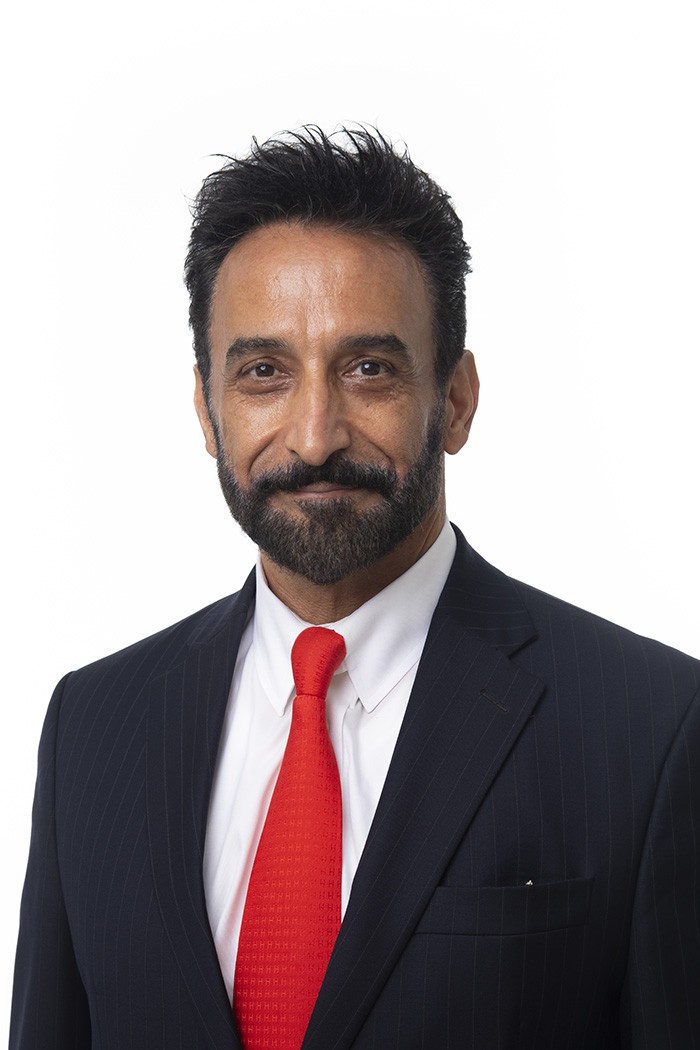Inside Pafford Hall, in the Office of Research and Sponsored Projects (ORSP) is where the newly hired Vice President for Innovation and Research, Dr. Daryush Ila, is hard at work, passionate, excited and full of great ideas; Dr. Ila has cutting-edge plans in store for the future of research at UWG.
Prior to assuming his current role on July 12 of this year, Dr. Ila was Associate Vice Chancellor for Research and Technology Transfer at Fayetteville State University (FSU). He previously led a team of student researchers that submitted their innovative research project to NASA, which was accepted and won the first-place award in the NASA technology transfer innovation competition. Now he has plans to help UWG students and faculty reach their full innovative potential.
The plan involves attracting external funding, encouraging small business startups by faculty and students, creating interdisciplinary research facilities, the creation of a verification and prototyping laboratory/gallery and encouraging more engagement with students in research projects.
Increasing external funding is one of the most important starting points of the initiative.
“Our original target was to increase external annual funding by 5%, and at least 15% in the annual total dollar value of the proposals submitted for external funding although we are way ahead of that target, already,” said Dr. Ila.
He also hopes to cultivate an interconnected community across all academic fields. This is one of the reasons Dr. Ila was interested to hear about the augmented reality (AR) project that is taking place at UWG involving the history, college of education, art, archeology and computer science departments. Faculty is currently working to receive a grant for the project.
AR involves digital images being superimposed over the real world, allowing for all types of advancements to our everyday lives as well as various fields, such as medicine. AR can help doctors to manipulate models of broken bones in patients during surgery, for example.
“[Faculty and students] are working with the history department to turn the history of the university into superimposed, augmented images,” said Dr. Ila. “With your cell phone and glasses, you can direct it towards buildings on campus, which will allow for 3-D visualization.”
This culture of connected academic disciplines is part of the plan for success when it comes to business startups. Under the new initiative, faculty and students will be supported and encouraged to pursue joint publications, patents, and copyright filings behind their current research endeavors in tandem with the business department.
“I am working with the College of Business so that we can encourage student startups,” said Dr. Ila. “That is the first step.”
The new research initiative rests on three main pillars, which are relevance, competitiveness and placemaking. To be relevant, Dr. Ila says the university must bring value to the local community and develop strong relationships with the local and regional community to address its specific needs.
“What is the strength of the university, and what is the need of the university?” said Dr. Ila. “Trying to identify those, it took me some time. This city has a huge agricultural community and a large medical center. The second thing I observed in addition to their initial core strength, is that the company invests in innovation and realization of other marketable widgets, and we at UWG can be involved in this endeavor.”
Being competitive requires networking with industries and companies, along with attracting small businesses and major corporations to the university. To coordinate this networking of experts in different industries, Dr. Ila said creating a North American Industry Classification System (NAICS) code will allow industries to be able to locate the university for expertise in different areas. NAICS codes allow industries and businesses to be able to find experts in other industries and acquire their services with minimum searching effort.
An example of this could be police officers working a crime where forensic experts are needed. The NAICS code for a forensic expert input into the system will bring up institutions where these experts can be contacted, including UWG. This is one way of attracting potential customers to UWG with minimum effort during the 21st century.”
“In order to become competitive…we can invest in building strength facilities, or subject matter expertise (SME),” said Dr. Ila. “Industries want to know if we have anyone who can answer their questions or if we have capabilities which they can count on using with no delay.”
You may also like
-
UWG’s Ingram Library Hosts Pop-Up Study Spot to Help Students Prepare for Finals Week
-
UWG Offers Mental Health Support And Academic Services To Maintain Student Success During Finals Week
-
UWG Alumnus Shares His Experience Exploring the Underground Flood Channels of Las Vegas
-
Georgia Students Simulate the Struggles of Dementia
-
UWG PR Students Score a Georgia Power Tour at Atlanta Corporate Office
